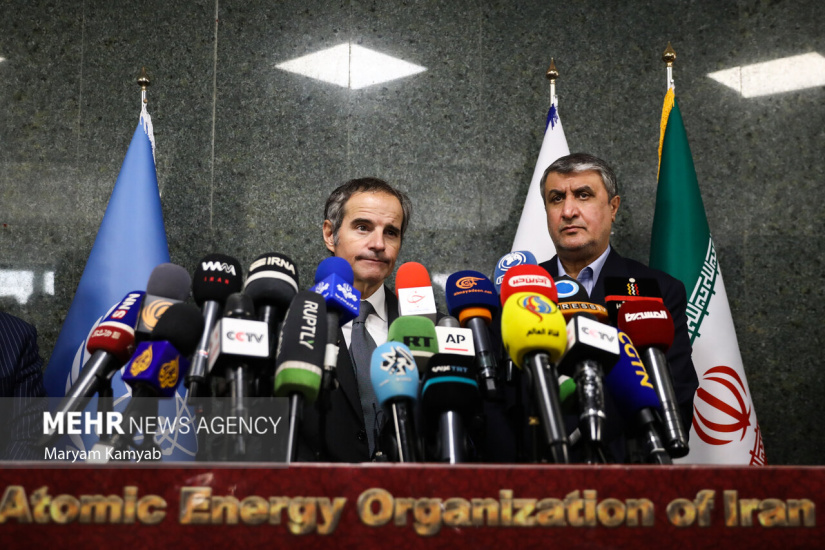Iran says it is seeking 'non-political cooperation' by IAEA

Mohammad Eslami, the president of the Atomic Energy Organization of Iran (AEOI), made the remarks during a joint news conference with the UN body's director general Rafael Grossi, who visited Tehran for the third time under the new Iranian administration.
Grossi stated that he had been in regular contact with the Iranian nuclear chief, but that the two sides "did have a lot of critical concerns" that had not been handled for a long time and that they had now "agreed to try a practical, pragmatic approach" to settle them.
The visit coincides with the conclusion of discussions in Vienna between Iran and the P4+1 group of countries aimed at resurrecting the 2015 accord, officially known as the Joint Comprehensive Plan of Action (JCPOA).
Grossi stated that the Vienna discussions and Iran-IAEA collaboration are intertwined, and that if Iran and the IAEA do not reach an agreement on safeguards problems, reaching an agreement in the Austrian capital will be difficult.
Eslami stated that he discussed with Grossi the outstanding issues raised by the IAEA chief in his earlier visits to Iran and those of Iranian officials to Vienna, and that they "reached a conclusion".
"It was resolved that the requisite documents will be exchanged between Iran and the IAEA" before the end of the Iranian month of Khordad, which falls on June 21, he added.
The remaining difficulties, according to Eslami, should be settled normally, and he hopes that "the new relationship and road we are constructing" with the agency would lead to Iran's progress.
"We hope that the collaboration process will be nonpolitical, and that the Iranian people will see the benefits in their daily life," he said.
"Political influence and lobbying should have no bearing on IAEA decisions."
Eslami added, "Iran and the IAEA should handle their concerns in a thoroughly professional manner and within the boundaries of their knowledge."
"Any political activity is out of question."
The nuclear deal talks in Vienna began in April after the administration of Joe Biden said the U.S. is willing to rejoin the JCPOA which was abandoned by his predecessor Donald Trump under his “maximum pressure” policy against Iran.
Tehran has stated that it will not accept anything less than a complete removal of all U.S. sanctions in a verifiable manner. It also wants assurances that Washington will not withdraw from the pact again.
Grossi stated that he was committed to improving the IAEA's collaboration with Iran and assisting the Iranian people in their journey to prosperity.
"It is critical to reach a shared understanding in order to cooperate. Nuclear energy is critical for the growth of countries such as Iran."
However, he had a hands-off approach to the issue of the IAEA's records or reports leaked to news agencies and certain governments.
"This is a question I've asked myself numerous times. Unfortunately, some members do not respect this confidentiality, which is terrible," he stated.
"There has been a lot of discussion within the agency about setting guidelines, but when someone wants to reveal material, it can't be stopped," he continued.
Prior to his journey to Tehran, the IAEA director stated that his visit comes at "a critical time, but a positive outcome for all is possible."
Later, the IAEA chief met with Iranian Foreign Minister Hossein Amir Abdollahian.
Source: Tehran Times

